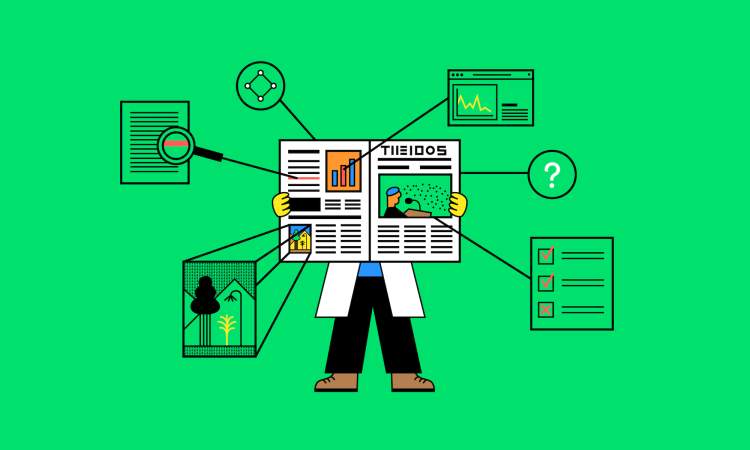
I’m both a news junkie and am active on social media. That’s a volatile mix in these political times. So when I saw an article on Ideas.TED.com about a better way to read the news, I was hooked.
The better way is actually quite simple — read as if you were a scientist.
How? Here is a summary of the six tips the article suggests —
1. Cultivate your skepticism.
One key to science is to challenge accepted wisdom. When you find something new on social media, Emma Frans, an epidemiology and psychiatry researcher at Oxford University in the UK and Karolinska Institutet in Sweden, says to think: “This may be true, but it also may be false. This kind of healthy skepticism does not mean you’re dismissing everything as false — it simply means remembering the things you hear could be false, but they could also be true … or they could be something in between.”
2. Find out who is making the claim.
“In science, researchers have to declare potential conflicts of interest before publishing their findings,” says Frans. When you find a new claim, look for any conflicts. Also consider what makes the writer or speaker qualified to comment on the topic, and what statements have they made in the past?
3. Watch out for the halo effect.
The halo effect, says Frans, “is a cognitive bias that makes our feeling towards someone affect how we judge their claims. If we dislike someone, we are a lot more likely to disagree with them; if we like them, we are biased to agree. Simply question how you would consider the claim if it came from someone else.”
4. Look at the evidence.
When evaluating a claim, Frans asks, “Can the sources be traced? Are they reliable? Is the conclusion based on a rational evaluation of the information?” And you should try to consider all of the research. Do a quick Google search — you never know what you might find.
5. Beware of the tendency to cherry-pick information.
We’re more likely to notice stories or facts that fit what we already believe (or want to believe) — “When you search for information, you should not disregard the information that goes against whatever opinion you might have in advance,” according to Frans. Look for friends and acquaintances on social media with alternative viewpoints for balance.
6. Recognize the difference between correlation and causation.
Frans researches ADHD and autism, and in recent decades, “the number of individuals diagnosed with these disorders have increased rapidly.” Many possible causes have been raised. However, “there is no evidence supporting these claims, and it’s important to remember that just because two things increase simultaneously, this does not mean that they are causally linked to each other.” Take a wider view and look into the other contributing factors. Frans says, “It’s important to remember that there might be alternative explanations to a phenomenon.”
The complete article is”How to read the news like a scientist” by Daniella Balarezo and Daryl Chen at https://ideas.ted.com/how-to-read-the-news-like-a-scientist/. The site also includes a link to her TED talk. The illustration came from that site.
